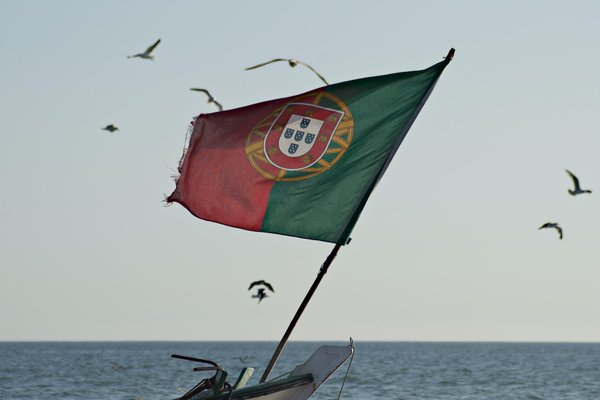10/11/2010 report of the Portuguese portal News diary warned that “there are Portuguese children who only speak Brazilian.” This worries some parents and guardians who have noticed differences in the speech of their children in Portugal: “They say gram instead of weapon, bus it buses, candies it bala, stripes they are stripes and milk in fridge instead of on Fridge“. This is due to the very close contact of children with videos of famous Brazilian YouTubers such as Luccas Neto. During the pandemic, access to these videos increased significantly, to the point where it affected the speech of the smallest, who began to speak “Brazilian”.
In the article, some parents talked about how their interactions with social media have influenced the speech of their children. “His whole speech is as if he were Brazilian. We got to the point where we were asked if any of us was Brazilian, me or my father, ”says one mother.
But after all, don’t Portugal and Brazil have the same official language? In theory, yes, especially after the signing of the New Spelling Agreement of 2009, which aimed to unify the writing of Portuguese-speaking countries. In practice, however, the differences persist and increase significantly.
Fonte: Shutterstock
Which Portuguese should I use at school?
During the pandemic, students switched from face-to-face classes to an online model. Taking this opportunity, a psychologist from Goias Adriana Campos witnessed the conversation between daughter and Portuguese teacher. The girl asked why her grade was lower than that of her Portuguese colleague, with whom she worked in pairs.
“The teacher said the job was great, praised their creativity, but told my daughter,“ But unfortunately, you still speak this inappropriate Portuguese, this Brazilian Portuguese. And you need to learn how to speak correctly. ” I couldn’t believe it, ”Adriana said.
The psychologist’s report complements other complaints from Brazilians who claim to be discriminated against because of their dialect. There is even testimony from university students who fear lower grades when using the Brazilian version. The fear is so great that many students even submit documents in English (the Erasmus program promotes academic mobility between European countries, so many Portuguese universities can submit documents written in English).
This attitude towards linguistic prejudice is inconsistent with Portugal’s policy to welcome and encourage intercultural interaction. Portugal’s Secretary of State for Education, João Costa, says the guidelines for the teaching of Portuguese “provide an area of standard European Portuguese, while also bringing together an understanding of the diversity of the notation and characteristics of the variations that are spoken around the world. Peace”.
“Real” Portuguese
Given this buzz about language changes in Portugal, it is interesting to note that the distinction between Brazilian Portuguese and European Portuguese is a recurring theme in the field of linguistics. Since 1980, researchers have been trying to figure out why the two languages diverge.
Many believe that it was the Portuguese from Brazil that differentiated and acquired their own characteristics. However, some research suggests that this is not the case. On video Brazilian Portuguese Brandslinguists comment on the fact that Portuguese settlers who arrived in Brazil in the 16th century passed on to the indigenous peoples the language they spoke in Portugal. And, analyzing the written documents of that time, one can see that this Portuguese language is more similar to Brazilian than to European.
In light of this observation, we can say that Brazil speaks “true Portuguese” (and there are a lot of quotation marks here!). It was European Portuguese that has undergone changes over time and, especially since the 18th century, eventually moved away from the language that was already spoken in the 16th century.

Where is the evidence?
One interesting case worth mentioning is the difference between the gerund (in Brazil) and the infinitive (in Portugal). For example, Brazilians often use the structure “I dance”, while for the Portuguese the most common structure is “I dance”. By analyzing one of the most famous Portuguese texts, Os Lusíadas, we can find many Gerundian structures. How does the infinitive work? Almost nothing! The Portuguese used in this work is much more similar to Portuguese, which is now called “Brazilian”, than to European Portuguese. This is one indication that the language in Europe has undergone many more changes than in Brazil.
It is worth noting here that the Portuguese language in Brazil has also changed over time, especially with the arrival of immigrants since the 19th century.
linguistic prejudices
Therefore, the claim that European Portuguese is “correct” and Brazilian Portuguese is “incorrect” does not make sense. First, neither form is right or wrong, both are variants of the same source language. Second, if we are going to turn to a more “traditional” language, the signs of Brazilian Portuguese indicate that it is much closer to Portuguese, which came from Portugal in the 15th century, than is spoken in Europe today.
So, is it worth discussing the changes that have occurred in languages over time? But of course! It is now illogical to fear for children speaking “Brazilian” due to the influence of YouTubers. All living languages are constantly changing. Different linguistic and social influences make a difference in any language, why should Portuguese be different?
In the case of fear of Portuguese parents, perhaps the problem is not so much linguistically as socially. But then we find ourselves in another topic, the topic of the next article!
See you later!
***
Mariana Bordignon S. de Sousa, weekly columnist for Mega Curioso, holds a degree in writing – Portuguese, a postgraduate degree in university teaching and a project management specialist. Has been working in the publishing market for over 10 years.














